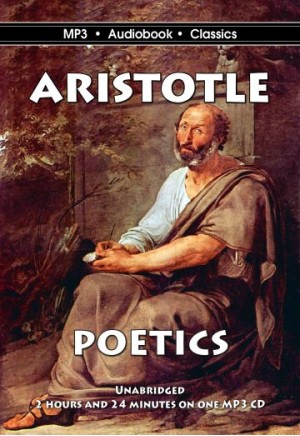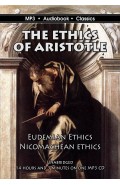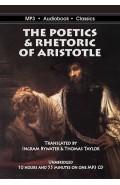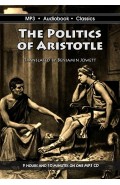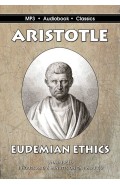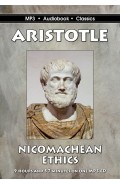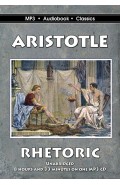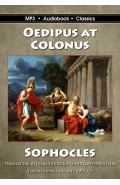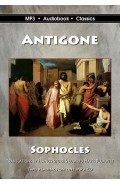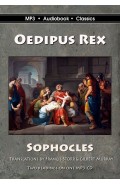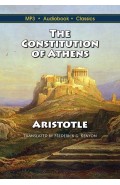| Track | Section | Length |
| 01 | 01 Poetics - Preface | 25:17 |
| 02 | 02 Poetics Chapters 1-3 | 9:09 |
| 03 | 03 Poetics Chapters 4-5 | 9:47 |
| 04 | 04 Poetics Chapters 6-8 | 13:17 |
| 05 | 05 Poetics Chapters 9-13 | 15:15 |
| 06 | 06 Poetics Chapter 14 | 5:29 |
| 07 | 07 Poetics Chapters 15-16 | 8:35 |
| 08 | 08 Poetics Chapters 17-19 | 10:50 |
| 09 | 09 Poetics Chapters 20-21 | 13:20 |
| 10 | 10 Poetics Chapters 22-24 | 16:39 |
| 11 | 11 Poetics Chapters 25-26 | 15:57 |
Production
Book Coordinator: Robert Foster
Meta Coordinator: Annie Coleman Rothenberg
Artwork
Cover: Aristotle, 1811, by Francesco Hayez (1791–1882)
Inset: Engraving of Aristotle by Ambroise Tardieu (1788-1841)
Insert: Detail showing Aristotle from 'St Thomas kneeling and offering his works to the Roman Catholic Church', between 1883-1887, Ludwig Seitz (1844-1908)
Play sample:
Download a PDF datasheet
| Item Info | |
| EAN - DVD case | 0701236969979 |
| Media | MP3 CD |
| Package | DVD case, CD jacket, CD security sleeve, download zip file |
| Author | Aristotle (384 BC - 322 BC) |
| Translator | Ingram Bywater (1840-1914) |
| Recording | |
| Read by | Robert Foster |
| Length | 2 hours 24 minutes |
| Type of Reading | Solo |
Poetics
- Author: Aristotle
- Product Code: DB-1277
- Availability: In Stock
-
$7.99
Available Options
Related Products
The Ethics of Aristotle
Aristotle coined the term “ethics” to define a field of study first undertaken by Socrates and Plato..
$11.99
The Poetics and Rhetoric of Aristotle
Poetics and Rhetoric together with Ethics and Politics constitute the pillars of Aristotle’s Practic..
$11.99
The Politics of Aristotle
Aristotle’s Ethics describes the means to the happy life of virtue intended by nature. In Politics h..
$11.99
Eudemian Ethics
Aristotle coined the term “ethics” to define a field of study first undertaken by Socrates and Plato..
$9.99
Nicomachean Ethics
Aristotle coined the term “ethics” to define a field of study first undertaken by Socrates and Plato..
$9.99
Rhetoric
Rhetoric is an ancient Greek treatise on the art of persuasion still considered “the most important ..
$9.99
Oedipus at Colonus
Oedipus at Colonus is the second of Sophocles’ Theban plays and the last to be written, completed ju..
$9.99
Antigone
Antigone is the third and last of Sophocles’ Theban plays based on the legend of Oedipus and Jocasta..
$9.99
Oedipus Rex
Oedipus Rex is the first of Sophocles’ Theban plays and is regarded by many as the masterpiece of Gr..
$9.99
The Constitution of Athens
The Constitution of Athens is a document attributed to Aristotle that describes the political system..
$9.99

